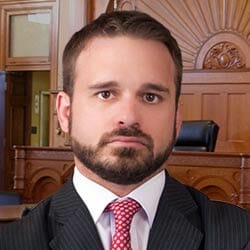March 20th, 2018 by Attorney Dan Carman

The burden is on the prosecution to prove a defendant has committed that crime. Part of their obligation is also being upfront and honest about the circumstances that led to the arrest. If that doesn’t happen, Kentucky criminal defendants’ legal rights may be violated. These violations could justify having charges dismissed.
Branches of America’s federal law enforcement and intelligence services may be secretly helping state and local police arrest suspects in ways that raise fundamental questions about defendants’ civil and due process rights, according to a recent Human Rights Watch (HRW) report.
It states that federal law enforcement agencies, local and state police and local prosecutors are hiding where evidence came from in numerous criminal cases, especially drug arrests. Information could be coming from the National Security Agency, the federal agency responsible for computer and phone surveillance of foreign countries, though sometimes that surveillance also covers people in the U.S.
Defendants and their attorneys often don’t know of federal involvement in a case, which could include illegal, warrantless searches, that may have been used to find evidence against suspects. Instead of being told the truth, police and prosecutors create alternative or parallel stories about how they discovered information, to prevent federal intelligence-gathering techniques from wider courtroom or legal review.
This “parallel construction” most often involves traffic stops and car searches. Federal agents secretly tell local police about a suspect based on information that may have been illegally obtained. Officers often follow a suspect as he drives, find a reason to pull him over, search the car and make an arrest. Without a valid, legitimate reason to follow a person, a vehicle search would be unconstitutional, and evidence found shouldn’t be used by the prosecution.
HRW claims the federal Drug Enforcement Administration is the most active in helping local police and prosecutors hide where evidence came from, to justify tipping off local police to follow suspects, resulting in what police call “whisper” or “wall” stops.
The rights group states that most defendants and their attorneys often are not aware of what’s going on and would have a hard time proving that local law enforcement is secretly using evidence gathered from federal agencies. HRW admits it doesn’t know how often this happens, but it states it probably goes on much more frequently than the public realizes.
As far as many defendants know, their case started with a broken tail light or improperly tinted windows. It’s only after the prosecution reveals its underlying source, which almost never happens, that the defense can challenge whether the car stop was constitutional. Otherwise, a defendant, his attorney and the judge in the case may never know.
The problem with the federal government and local law enforcement covering up what actually started an investigation is that they decide what’s a lawful, independent source of information or what may violate the constitution. Defense attorneys and judges are kept in the dark.
HRW urges judges and defense attorneys to challenge the origins and details of evidence and push back against possible cover ups. In the case of these “whisper” stops, defense attorneys and judges need to ask why the arresting officer was following a suspect, why the officer was there and why the vehicle was stopped.
This practice is highly illegal and destructive to our criminal justice system. Decisions as to what evidence can be used should be up to a judge, not the prosecution. Trying to prevent our clients’ constitutional rights from being taken away is something we do every day.
If you are being investigated or have been charged with a crime in Kentucky, the Carman Law Firm offers experienced representation. Dan Carman has practiced law in Kentucky for years, and also served as in-house counsel for an infantry battalion when he was deployed to Iraq as a U.S. Marine. From arrest to appeal, he has the necessary expertise to effectively maneuver your case through the criminal process. Contact him by phone at (859) 838-1415 or by fillig out our online form.

 Focusing on criminal matters, Mr. Carman is admitted to practice law in all Courts of the Commonwealth of Kentucky, the United States District Courts for the Eastern and Western Districts of Kentucky, and the United States Court of Appeals, Sixth Circuit. He is a member of the American, Kentucky, and Fayette County Bar Associations. Mr. Carman also worked as a prosecutor, as well as a legal assistance attorney. Attorney Dan Carman can help you with any criminal defense matters you may need including; DUI, drug, and weapons charges, trespassing, traffic violations and more. [
Focusing on criminal matters, Mr. Carman is admitted to practice law in all Courts of the Commonwealth of Kentucky, the United States District Courts for the Eastern and Western Districts of Kentucky, and the United States Court of Appeals, Sixth Circuit. He is a member of the American, Kentucky, and Fayette County Bar Associations. Mr. Carman also worked as a prosecutor, as well as a legal assistance attorney. Attorney Dan Carman can help you with any criminal defense matters you may need including; DUI, drug, and weapons charges, trespassing, traffic violations and more. [